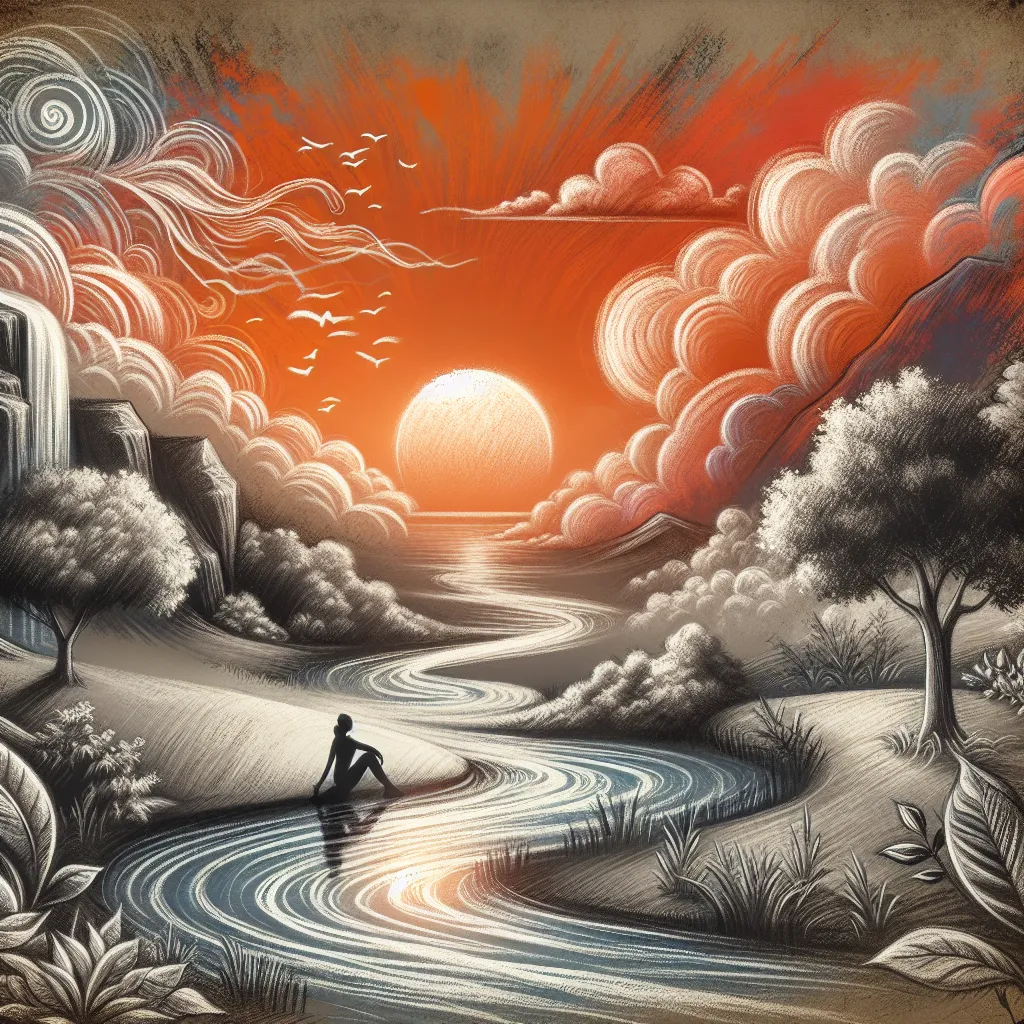
- Published on
- Authors

- Name
- You
Zen and Creativity: Unlocking the Artistic Spirit
Introduction
The realms of Zen and creativity might seem disparate at first. One stems from a rich tradition of meditation and mindfulness, while the other is often seen as a burst of spontaneous ingenuity. However, when intertwined, Zen practices can profoundly unlock and enhance the artistic spirit. This article explores the symbiotic relationship between Zen and creativity, blending advanced scientific insights with mystical wisdom, and providing enriching examples of Zen-influenced art and literature.
The Principles of Zen
Zen, a school of Mahāyāna Buddhism, emphasizes the value of meditation, insight, and direct, experiential realization. Its key principles such as Zazen (seated meditation), mindfulness, and the concept of Mushin (no-mind) cultivate a state of presence and flow that is conducive to creative endeavors.
Key Zen Principles for Creativity
| Principle | Description |
|---|---|
| Zazen | Meditative practice that helps in maintaining a state of relaxed alertness. |
| Mindfulness | The practice of being present in the moment, enhancing sensory awareness. |
| Mushin | A state of "no-mind" where the mind is free from thoughts and emotions. |
The Science of Creativity
Modern neuroscience offers compelling insights into how Zen practices can enhance creativity. Creativity is often associated with the brain's default mode network (DMN), which is active when the mind is at rest and engaged in spontaneous thinking. Meditation, a cornerstone of Zen, has been shown to modulate the DMN, leading to improved creative thinking by:
- Reducing mind-wandering and self-referential thoughts.
- Enhancing divergent thinking, which is crucial for brainstorming and generating novel ideas.
- Increasing cognitive flexibility, allowing for more adaptive problem-solving.
Neuroscientific Findings
- Mind-Wandering and Creativity: According to a study by Baird et al. (2012), mind-wandering, which can be regulated by Zen meditation, is linked to creative problem-solving.
- Enhanced Divergent Thinking: Colzato et al. (2012) found that meditation can foster divergent thinking, leading to more creative ideas.
Zen Practices to Cultivate Creativity
Integrating Zen practices into daily routines can open creative channels and invigorate artistic expression. Here are a few practices:
1. Zazen (Seated Meditation)
- How to Practice: Sit in a comfortable position, focus on your breath, and observe your thoughts without attachment.
- Benefits: Enhances focus, reduces mental clutter, and fosters a state of relaxed awareness ideal for creativity.
2. Mindfulness Exercises
- How to Practice: Engage fully in everyday activities, bringing awareness to minute details and sensations.
- Benefits: Heightens sensory perception, enriches experiences, and inspires creative interpretations.
3. Mindful Art Creation
- How to Practice: Approach artistic endeavors as meditative practices, focusing on the process rather than the outcome.
- Benefits: Deepens the connection to the art, allowing for more genuine and spontaneous creation.
Examples of Zen-Influenced Art and Literature
Throughout history, numerous artists and writers have drawn upon Zen principles to shape their work:
Haiku Poetry
- Example: Matsuo Basho, a renowned Japanese poet, utilized the simplicity and profundity of Zen to create poignant and evocative Haiku.
"An old silent pond...
A frog jumps into the pond,
splash! Silence again."
Sumi-e (Ink Wash Painting)
- Example: This traditional form of Japanese ink painting emphasizes simplicity, asymmetry, and the beauty of imperfection, reflecting Zen aesthetics.
Zen-Inspired Modern Art and Literature
- Example: The works of John Cage, an avant-garde composer, are deeply influenced by Zen philosophy, particularly the concept of emptiness and silence.
Conclusion
By harmoniously blending the principles of Zen and scientific insights on creativity, we can unlock new dimensions of artistic expression. Whether through meditative practices, mindful engagement, or Zen-inspired creation, the marriage of Zen and creativity offers a path to profound and enriching artistic experiences. As we cultivate presence and mindfulness, we not only enhance our creative capacities but also deepen our connection to the artistry within and around us.
